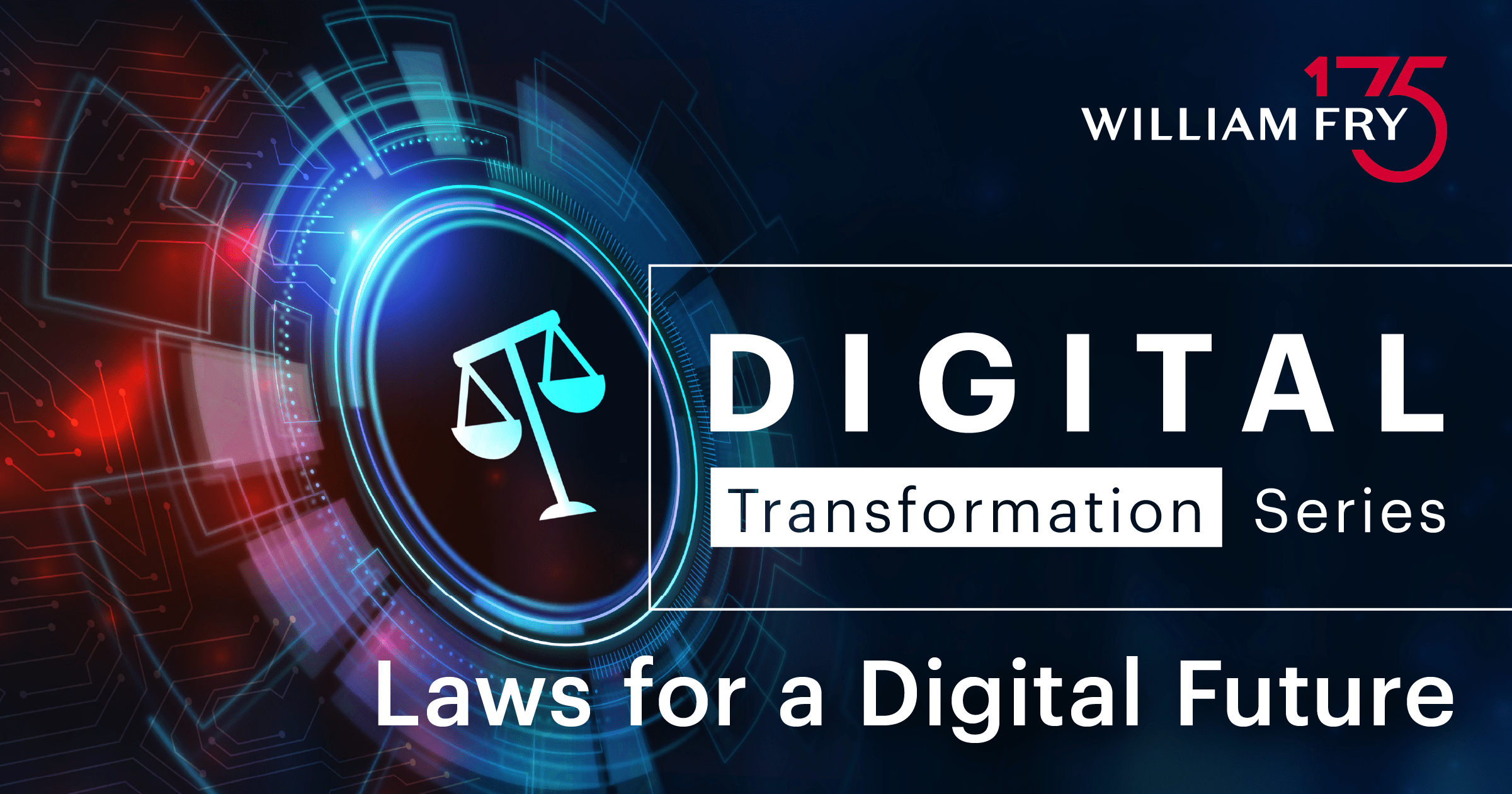Not only is digital transformation changing business processes and operations, but legislative reform at EU level is also being heavily influenced by the rapid changes in our digital environment.
The European Commission (EC) proposed the Digital Decade in March 2021 which envisages the digital transformation of Europe by 2030. Four main targets of the digital decade were identified: skills; the digital transformation of businesses; secure and sustainable digital infrastructures; and the digitisation of public services. The digital ambitions of the EU are to be achieved at EU and national level, by way of a joint governance framework and multi-country projects that combine EU, Member State and private sector investments. Potential areas of partnership that have been identified include 6G, quantum computing and the use of technology to combat climate change.
In support of, and complementary to, the EU’s digital strategy, a suite of new legislation has been and is being introduced, with the aim of strengthening Europe’s digital sovereignty, setting standards and focusing on data, technology and infrastructure in this, Europe’s ‘Digital Decade’. Over the next few weeks our William Fry Technology team will review key pieces of legislation, what it means for you and your business and what next steps you may need to take in order to comply with the new rules. We will look at the following legislative introductions:
Artificial Intelligence:
The aim of the EU is to build trustworthy artificial intelligence, Barry Scannell looks at the proposed new EU rules and actions for AI. The AI Act is the world’s first proposal for a legal framework regulating specific uses of AI. The AI Liability Directive and the new Product Liability Directive which increase the liability risk for companies using AI.
Data:
The European data strategy introduces protections for data, ensuring it is stored in a secure and trusted way. Michelle Daly and Rachel Hayes look at both the Data Governance Act and the Data Act.
Digital Services Package:
Karolina Rozhnova and Briona Brogan look at the Digital Services Act (DSA) and the Digital Markets Act (DMA). These acts seek to ensure European citizens can be confident in their safety online and businesses can thrive in the digital world. It is also ensuring e-commerce rules stay up to date in the Digital Decade.
Cyber:
The NIS Directive was the first piece of EU-wide legislation which aimed to achieve a high common level of cybersecurity across Member States. Róisín Culligan looks at the proposed NIS2 Directive (which replaces the NIS Directive), the proposed expansion of scope effectively obliges more entities and sectors to take cyber security measures.
Online Privacy and Safety: Annah Kenna looks at the proposed e-Privacy Regulation which aims to update the previous rules. The EU is currently discussing new privacy rules that build trust and security online for the Digital Decade. The rules will give us greater control over our data and devices.
Copyright:
One year on from it’s implementation in Ireland, David Kirton looks at the Directive on Copyright in the Digital Single Market, (Directive 2019/790). The Directive was designed to provide a framework for a more modern copyright legislation that will strengthen the rights and protections afforded to various categories of rights holders in the digital economy.
New Technologies: Under the digital strategy the EU is committed to fostering the growth of blockchain so European citizens can enjoy its benefits across these areas and more, and so Europe can become a global leader in blockchain. The crypto world is a significantly underregulated technology and industry, Róisín Culligan looks at the EUs Markets in Crypto Assets Regulation that is likely the first of many new pieces of legislation which looks to regulate the industry. The EU is likely to bring in new legislation regulating Non-Fungible Tokens (“NFT”s) in the coming years, with the recognition of blockchain technologies in many other pieces of legislation.
We look forward to bringing you insights on new legislation which may impact your business and digital transformation decisions. As always, if you have any queries or questions on the content of the series, do feel free to reach out to your usual William Fry contact.
Contributors: Leo Moore and Róisín Culligan



